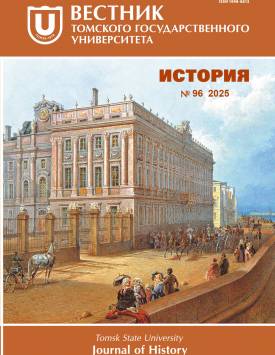Feedback in the university educational environment as a form of students’ risk management (on the example of Tomsk State University of Control Systems and Radioelectronics (TUSUR))
Currently, the article puts forward many issues related to the risks in the field of applicants' choice of a specialty for subsequent employment that are currently relevant. Risk is the young people’s decision making in a situation of uncertainty. Firstly, no one can guarantee an applicant that after completing the studies, the chosen profession will be in demand. Secondly, a choice that can be made is of key importance for professionalization. At the same time infantilism, lack of life experience can give rise to doubts and crisis states. Reflection on challenges and problems leads to an understanding of the need to establish feedback with students as a tool of the educational process. The purpose of this article is to study the role of feedback as a form of student risk management in the educational space on the example of Tomsk State University of Control Systems and Radio Electronics (TUSUR), using one of its effective forms - annual monitoring (2021-2024). The authors provided the monitoring in the form of online surveys, and students of 1-5 full-time courses from all faculties of TUSUR, as well as undergraduates, participated in it. The total number of respondents was 274 in 2021, 235 in 2022, 312 in 2023, and 366 in 2024. Spontaneous sampling became the method of forming the survey. According to the surveys, students' priorities included the need to acquire analytical skills, working in a digital environment, research skills, developing critical thinking, the ability to structure texts, and teamwork (a total of 729 respondents' responses). They have a request for the development of communication skills: public speaking, effective interpersonal communication, public speaking and discussion, understanding and managing emotions (a total of 622 respondents' responses). Extracurricular activities, in which more than half of the students participate, in their opinion, contribute to their comprehensive development, the formation of personal qualities, a sense of responsibility and an active civic position. Thus, monitoring to identify feedback from participants in the educational environment can be not only a means of assessment, but also a tool that will make the management of the educational process more effective. Studying feedback captures the interests, views, and assessments of students of the entire dynamics of the educational process and extracurricular activities. The authors declare no conflicts of interests.
Keywords
quality of education, stakeholders, university, students, educational processAuthors
| Name | Organization | |
| Zinoviyeva Valentina I. | Tomsk State University of Control Systems and Radio Electronics | valentina.zinoviyeva@gmail.com |
| Raitina Margarita Yu. | Tomsk State University of Control Systems and Radio Electronics | raitina@mail.ru |
| Pokrovskaya Elena M. | Tomsk State University of Control Systems and Radio Electronics | pemod@yandex.ru |
| Pustovarova Anna O. | Tomsk State University of Control Systems and Radio Electronics | anna.o.pustovarova@tusur.ru |
References

Feedback in the university educational environment as a form of students’ risk management (on the example of Tomsk State University of Control Systems and Radioelectronics (TUSUR)) | Tomsk State University Journal of History. 2025. № 96. DOI: 10.17223/19988613/96/23
